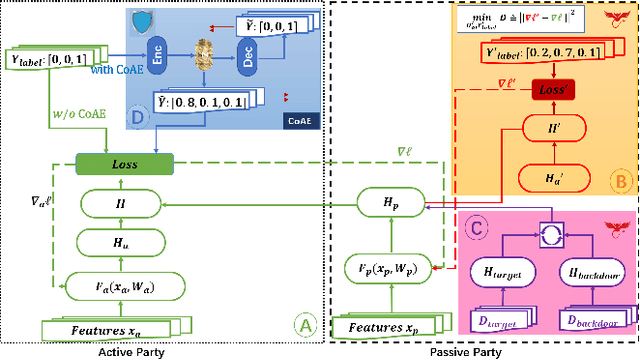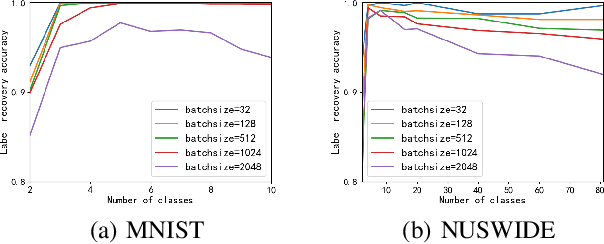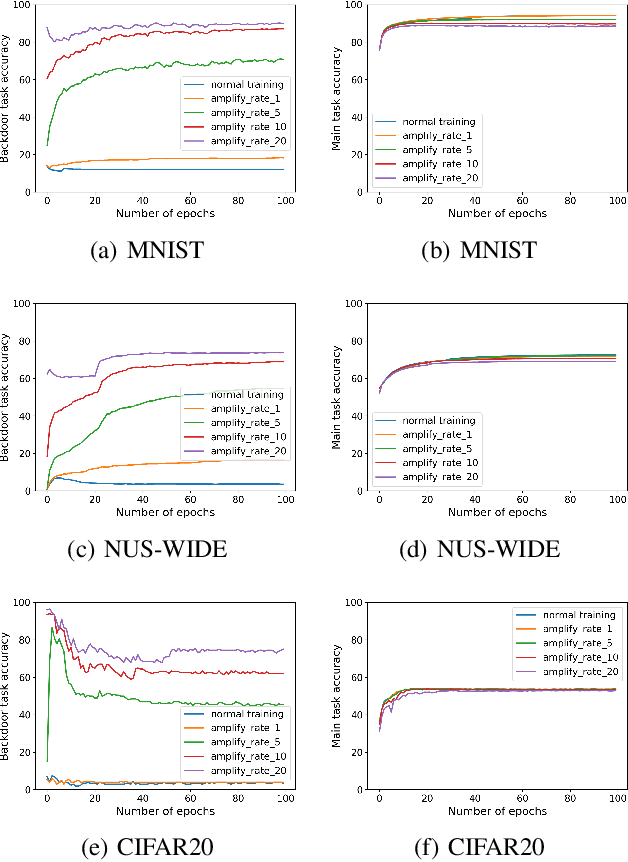Defending Label Inference and Backdoor Attacks in Vertical Federated Learning
Paper and Code
Dec 10, 2021



In collaborative learning settings like federated learning, curious parities might be honest but are attempting to infer other parties' private data through inference attacks while malicious parties might manipulate the learning process for their own purposes through backdoor attacks. However, most existing works only consider the federated learning scenario where data are partitioned by samples (HFL). The feature-partitioned federated learning (VFL) can be another important scenario in many real-world applications. Attacks and defenses in such scenarios are especially challenging when the attackers and the defenders are not able to access the features or model parameters of other participants. Previous works have only shown that private labels can be reconstructed from per-sample gradients. In this paper, we first show that private labels can be reconstructed when only batch-averaged gradients are revealed, which is against the common presumption. In addition, we show that a passive party in VFL can even replace its corresponding labels in the active party with a target label through a gradient-replacement attack. To defend against the first attack, we introduce a novel technique termed confusional autoencoder (CoAE), based on autoencoder and entropy regularization. We demonstrate that label inference attacks can be successfully blocked by this technique while hurting less main task accuracy compared to existing methods. Our CoAE technique is also effective in defending the gradient-replacement backdoor attack, making it an universal and practical defense strategy with no change to the original VFL protocol. We demonstrate the effectiveness of our approaches under both two-party and multi-party VFL settings. To the best of our knowledge, this is the first systematic study to deal with label inference and backdoor attacks in the feature-partitioned federated learning framework.
 Add to Chrome
Add to Chrome Add to Firefox
Add to Firefox Add to Edge
Add to Edge